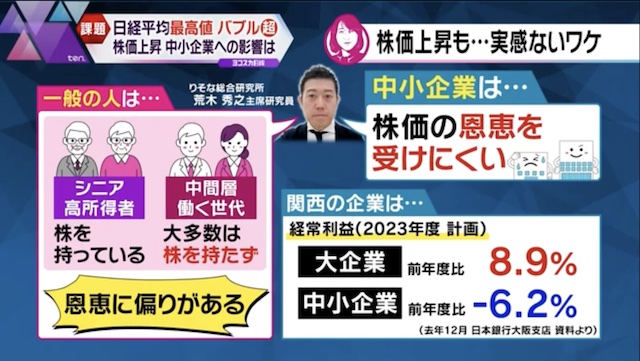TOKYO, Feb 23 (News On Japan) - On the 22nd of this month, the Nikkei Stock Average reached a new all-time high, surpassing the peak of the bubble period in 1989. While some view this as a sign of optimism towards Japanese companies, others point out that it does not reflect the actual state of the economy. The focus now is on whether stock prices will continue to rise and whether companies can achieve growth that justifies their stock valuations.

On the 22nd, the closing price of the Nikkei Stock Average on the Tokyo Stock Exchange was 30,098.68 yen, surpassing the all-time high set on December 29, 1989, for the first time in 34 years. What was the "bubble peak period" like? Market participants and experts are expressing their evaluation of the earning power of Japanese companies and the expectation that the Japanese economy will break free from deflation, achieving a virtuous cycle of wages and prices, suggesting that there is room for further increases in stock prices. On the other hand, there are observations that this stock price does not reflect the reality of the Japanese economy, and that the potential removal of negative interest rates being considered by the Bank of Japan and the slowdown of the Chinese economy could pose risks to the stock market in the future. As opinions on stock prices diverge, whether this upward trend will continue is drawing attention. Moreover, whether companies can achieve growth commensurate with their stock prices is also a focal point.
According to statistics from the Ministry of Finance, domestic companies increased their capital investment during the bubble period. However, following the bubble's collapse, a cautious stance has prevailed, and investment levels have remained below those of the time for over 30 years. A key challenge for Japanese companies will be whether they can shift to management that actively invests in facilities and personnel to generate innovation.
Source: NHK















